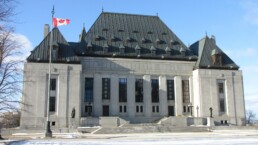Federal Government Expected to Shut Down Designated Countries of Origin Refugee System
The Designated Countries of Origin (DCO) system was initially created by the Conservative government in 2012 with the intention of decreasing processing times for inland refugee claims in Canada. Countries included on a list of DCO “do not normally produce refugees, but do respect human rights and offer state protection,” as stated by Immigration, Refugee and Citizenship Canada. The system intended that claims from refugees from a DCO be more quickly processed by imposing a 30- to 45-day processing deadline, (as opposed to the 60-day period for regular claims) and by barring their right to appeal to the Refugee Appeal Division.
However, the DCO system has not been as effective as was hoped. As a result, the Liberal government is now expected to shut it down.
Many arguments have been raised in public debates in favour of abolishing this system. For example, some argue the system hinders refugee claims from DCO because these claimants have less time to prove the merits of their case. Moreover, the Immigration and Refugee Board (IRB) has had difficulty respecting the 30- to 45-day time limit due to scheduling conflicts. Mario Dion, the chairperson of the IRB, said that abolishing the distinction would help in meeting deadlines and that the distinction doesn’t make a difference in the final analysis of claims.
Moreover, there is also a debate concerning what countries should and should not be on the list. MP Jenny Kwan had said that this “two-tiered” designation of countries “actually fails to respect human rights for minority groups, including the LGBTQ community, and around gender-based violence.”
Despite this system, on average, refugee claims from DCO still take the same amount of time to process as refugee claims from non-DCO. Reasons for this include scheduling conflicts and the increase in the sheer number of total refugee claims since 2012. The number of refugee claims per year has more than doubled since 2012, but the number of decision-makers at the IRB has remained the same. Furthermore, courts have struck down the law that prevented DCO refugee claims from appealing their IRB decision to the Refugee Appeal Division.
As result, the Liberal government is contemplating shutting down the DCO system and is looking at new ways to make the processing of refugee claims more fair and efficient. Currently, there is no timeline as to when a systemic change may be implemented.
These issues are compounded by the lifting of the visa requirements on Mexico, a country on the DCO list. Janet Dench, executive director of the Canadian Council for Refugees, said that once the visa requirements on Mexico are lifted on December 1, there will be an influx of people from Mexico facing human rights violations who will be claiming inland refugee protection. Because Mexico is a DCO, this will cause even more scheduling complications for the IRB due to its different processing timeline and thus will cause further delays.
Share this article
Arghavan Gerami
Arghavan Gerami is the Founder and Senior Counsel at Gerami Law Professional Corporation ('PC'), a full-service immigration law firm in Ottawa, Ontario. Since 2011, Ms. Gerami has focused her practice on immigration and refugee litigation. Prior to that, Ms. Gerami worked at the Ministry of Attorney General and the Department of Justice and had the privilege of serving the Honourable Mr. Justice M. Evans at the Federal Court of Appeal on immigration and administrative law appeals. Ms. Gerami contributes to the Immigration Law Section of the Canadian Bar Association, the Canadian Association of Refugee Lawyers, and the United Nations High Commissioner for Refugees. Ms. Gerami has also published numerous journal articles and presented at various immigration and refugee law conferences and events across Canada.

